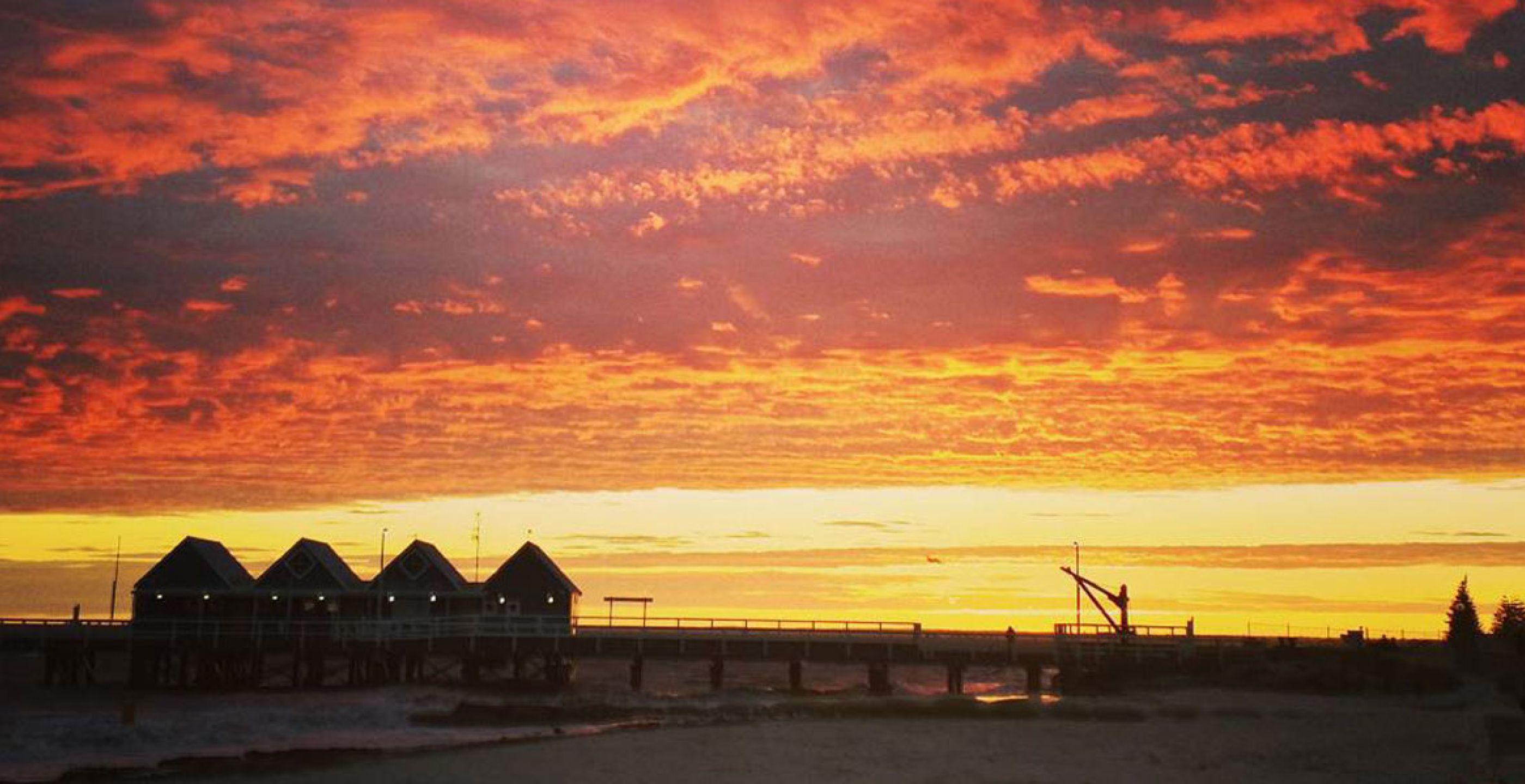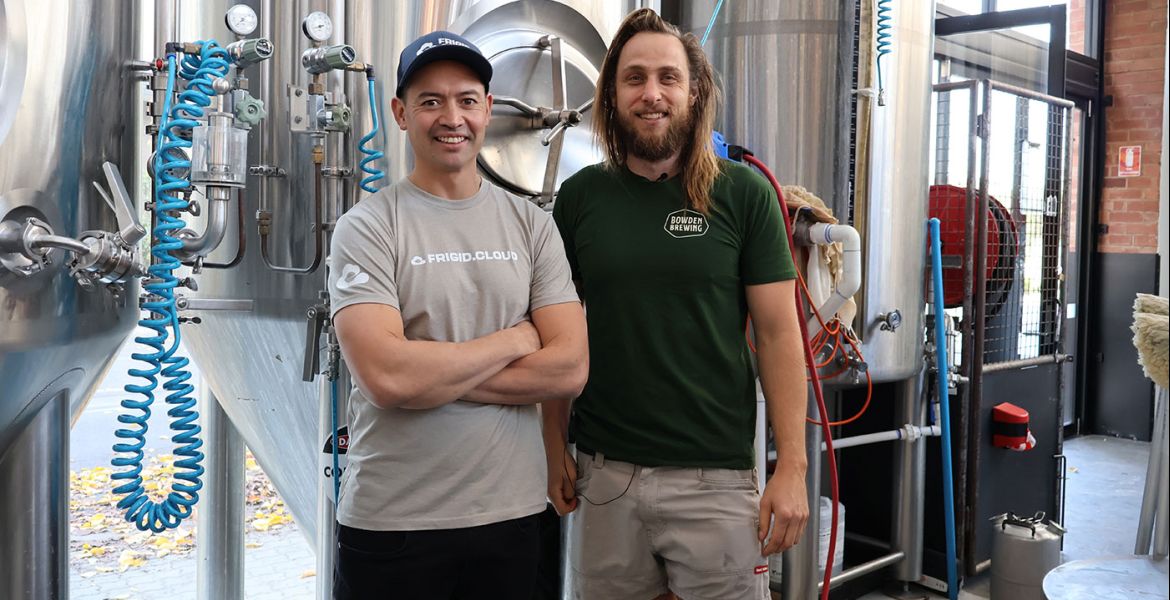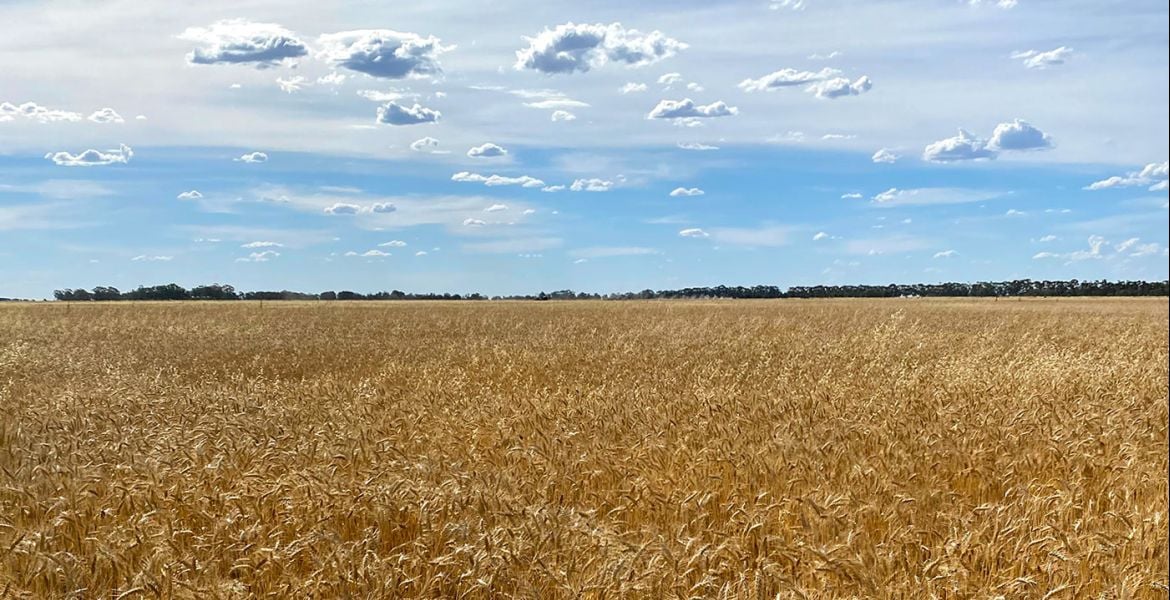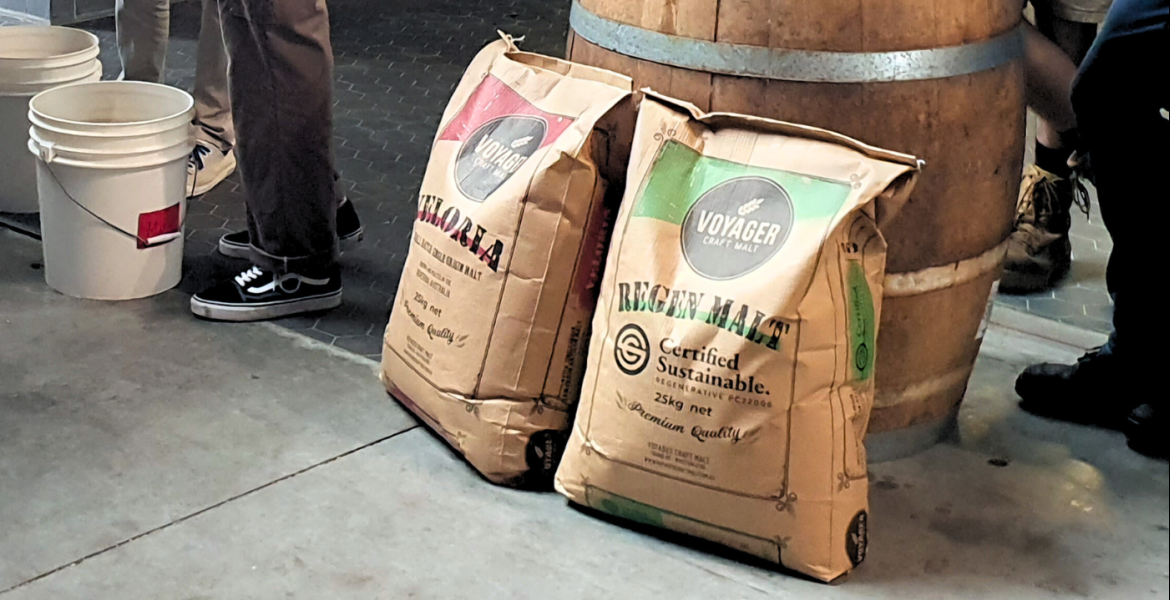When Hamish Coates wanted to start a brewery on his family’s fifth generation farm, he faced an immediate challenge: how could he power all that new machinery?
As an ardent supporter of sustainable farming practices, Hamish’s plan for Rocky Ridge Brewing was always to use solar power in order to go off grid – eventually. But when he realised the cost of extending power from his father’s dairy farm to where he was setting up the brewery he started to rethink things.
“When we were faced with setting this up and the cost of the power extension we needed, we already had an ideal to be sustainable, but that fast tracked everything,” Hamish says. “We made the choice to be 100 percent off grid right there and then and that’s basically what we’ve gone with since.
“I don’t really know how to put it other than to say, at the end of the day, we could have gone with being on the grid and had a shit power supply, or we could have gone for a renewable option that works really well and does the right thing by the planet.”
Despite sustainable energy often being touted in the press as less reliable than non-renewables, for Hamish, the differences since his brewery launched in 2016 are stark.
“We have about 30 blackouts a year on average being on the grid for the dairy farm,” he says. “For [the brewery] we haven’t had a blackout since we started because we have a solar and battery system which is more than capable of catering to our needs.
“When you’re brewing beer, you can’t afford for there not to be power because then you don’t have chilling and you have really, really horrible beer.”
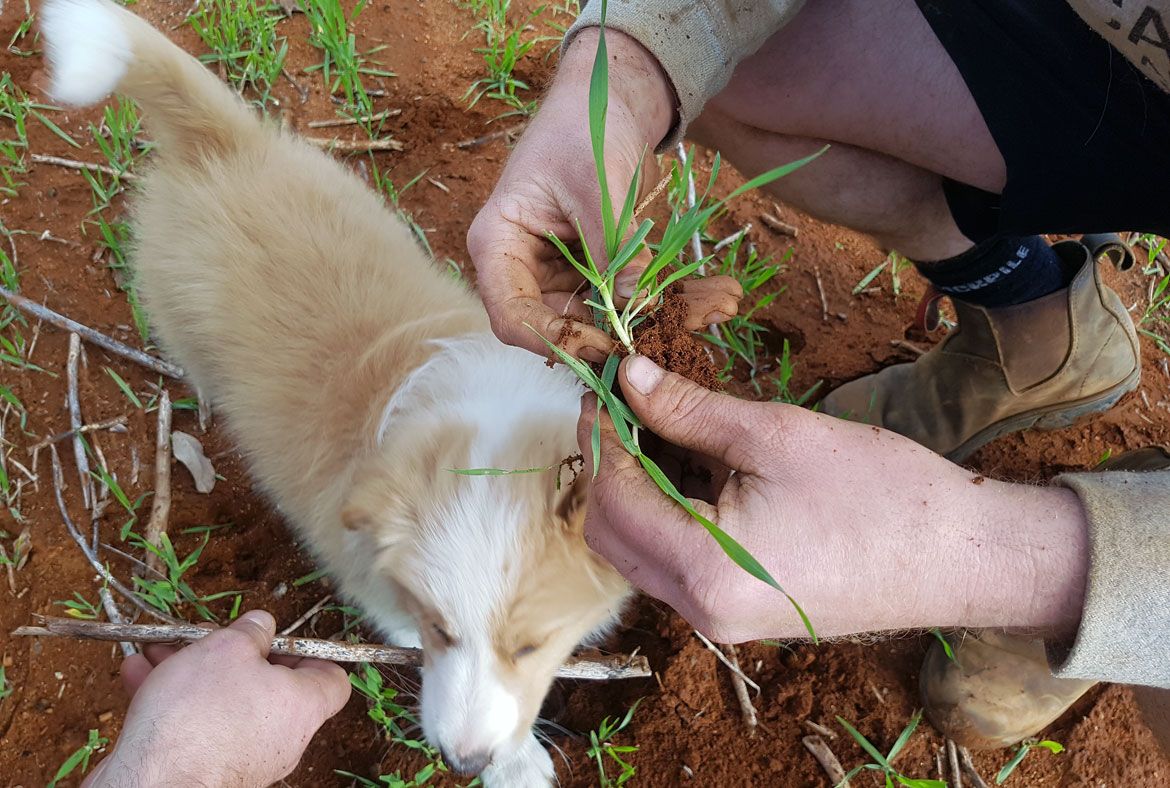
Hamish says, despite there being some challenges to powering his 15 hectolitre system and canning line, ensuring it works is just a matter of working smarter.
“We’ve had to be careful with our scheduling and use our processes at the right time, but it’s just about management practices more than anything else,” he says.
“Realistically speaking, we are way in front of where we would have been if we'd had an electricity connection because we haven’t had to pay for power.”
For Rocky Ridge, brewing off grid is just part of the brewery’s wider philosophy of trying to keep its carbon emissions as low as possible. To date, the brewery grows about 90 percent of the hops it uses, with the aim of taking that to 100 percent next year. Rocky Ridge’s barley is grown on the family farm before being sent to a small Western Australian maltster, while rainwater and indigenous WA yeast complete the picture.
Despite Rocky Ridge being a regional brewery, Hamish says the lessons from his experience can still be taken on board by breweries operating in major cities.
“It’s something everyone baulks at when they look at it because if you’re in an industrial estate and you’ve got power to the door, it seems to be the easiest thing ever to connect.
“But, if you’re paying two thousand or three thousand dollars a month in power, all of a sudden that adds up really quickly. The renewable technology is more reliable than it’s ever been and it’s only going to become more reliable, but it is still a decision of when to take a plunge of when to do it.
“For others who are looking at it, I’d urge everyone to take the time to run the numbers because when you do it works out really well.”
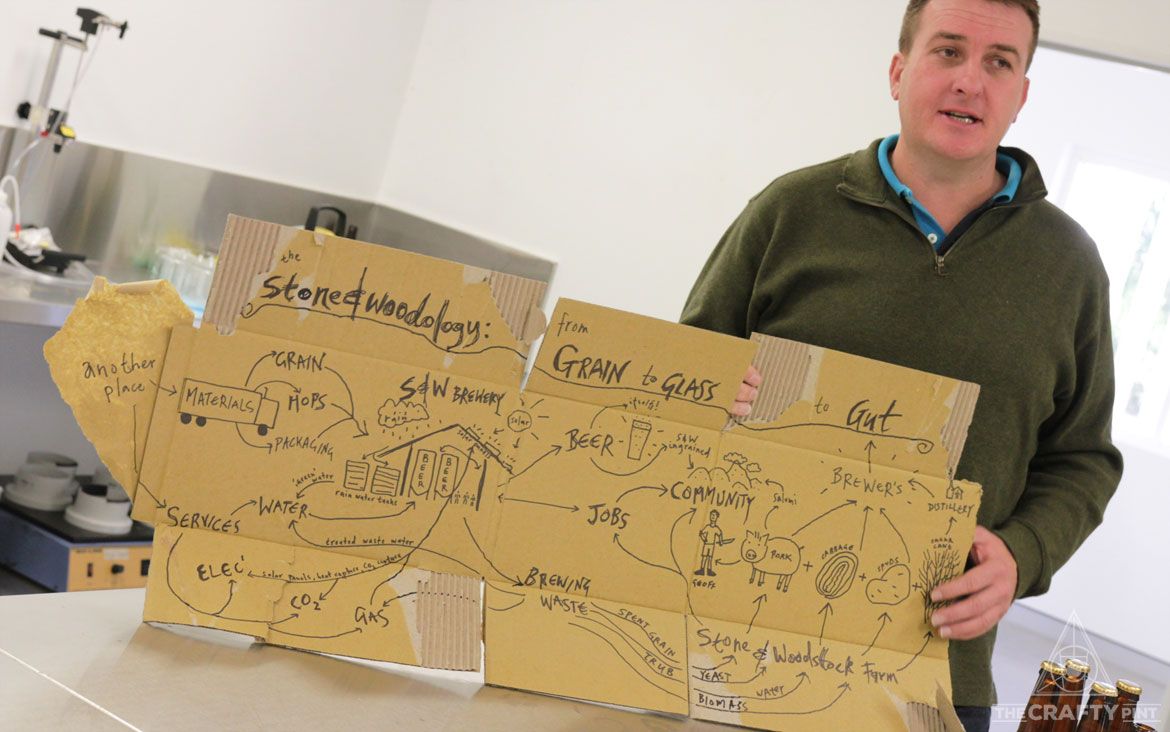
If size could be considered an impediment to a business focusing on sustainability, it doesn’t ring true for one of Australia’s largest breweries, Stone & Wood. On the contrary, James Perrin, the brewery’s sustainability manager, believes craft breweries are well placed to be sustainable businesses. Despite being an energy intensive industry, historically speaking breweries didn’t only provide beers to the locals but were a part of the surrounding community.
“There’s something around craft breweries, for me, that are at the forefront of this whole conscious consumerism movement,” James says, "where the type of people who are buying craft beer are generally also the kind of people who are interested in environmental and community sustainability and ethical social practice.
“I feel that craft brewers have a key role to play in that as other businesses or industries come on board as well.”
Stone & Wood’s path to sustainability goes back to its early days, but the formalisation of that process was when the brewery became a certified B Corporation. B Corp status is an accreditation given by the not-for-profit B Lab when businesses meet certain standards of social and environmental performance, accountability and transparency.
For Stone & Wood, becoming a B Corp registered company helped formalise the brewery’s long-term approach to water, energy, waste and community involvement. James says that, since the company had been founded in Byron Bay, it had often considered itself the village brewery and the Stone & Wood team also strongly shared B Corps’ values relating to community, workforce and governance.
“It was really a great way to accredit – or to give us some confidence in – the way we are running our business,” he says.
“We weren’t going to go out and become a B Corp at all cost and do whatever the assessment tool says, it was very much about us being happy around the way we were going and looking at this growing community of companies.”
It’s that need to showcase who they are that James says enables a brewery like Stone & Wood to have an advantage over larger corporations.
“When consumers start losing that connection to where their beer is coming from and who’s making it then I think it’s not just damaging to that brand but to the whole industry,” he says, suggesting businesses shouldn’t assume environmentalism impedes growth.
“Maybe in the short term. But I think if you are thinking longer term, it would be a disadvantage to those breweries, because environmentally sustainable decisions have a very long-term benefit that keep paying themselves back year on year.”
While Stone & Wood may be one of Australia’s largest independent breweries, it’s a far cry in scale from the largest brewing company in the world: AB InBev. But, since September 2017, it’s within that global behemoth that you find Australia’s only other B Corp certified brewery, 4 Pines. The Northern Beaches operation gained the status early in 2017, after working towards it for nearly a year.
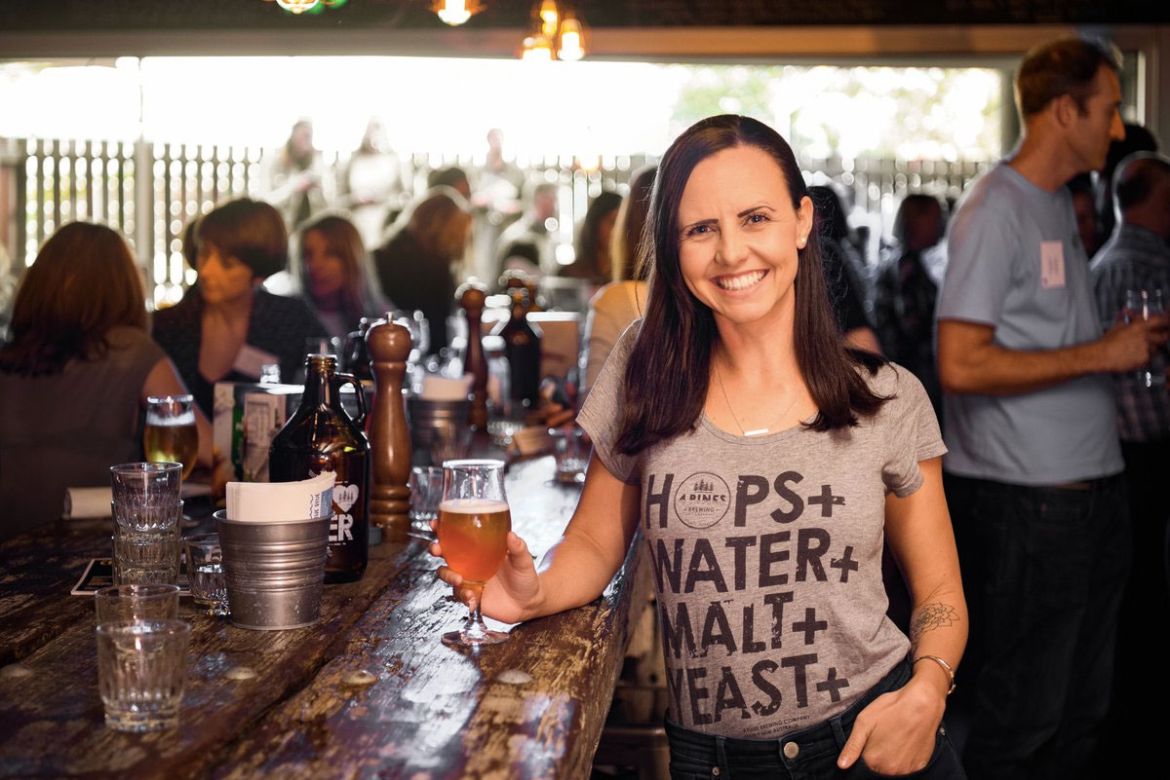
Kiera Murphy (pictured above at 4 Pines Keller Door in Manly) is the brewery's sustainability policy and planning manager. A California native, Kiera grew up surrounded by both craft beer and environmentalism before moving to Sydney to complete a PhD in sustainable development.
Kiera manages 4 Pines’ B Corp certification and doesn’t believe including community involvement or environmental actions within day to day operations needs to slow or hinder a company’s success.
“I think that’s a really traditional perception of sustainability,” she says. "Week on week, there is new technology that’s coming out which is making it [cheaper] to invest in sustainability.
Kiera says B Corp’s holistic approach to business helped 4 Pines understand how to act the way it wanted to and that, as members of the beer community, the company has long felt a need to consider the environmental impact of what it produces.
“In a bigger picture sense, as a beer company – or as the beer industry – we have to take responsibility for the fact that we do pollute. We are a massive contributor to the environmental crisis because we rely on natural resources to make our product.”
Since gaining its B Corp certification, the ownership structure of 4 Pines has changed, but Kiera stresses the business has retained its former practices, including what it terms "Save The Pines".
“It is a new sub-movement within B Corp, to have B Corps maintain their status throughout an acquisition, and we were the first of such acquisitions in Australia,” she says.
“We are still the ones doing beach cleans on a regularly basis or out there fundraising. But it’s exciting to try and aspire to walk down that same path as we grow.”
For the village brewery, Stone & Wood’s man in charge of sustainability might not be a natural ally of the global brewer, but James can see the benefit of 4 Pines remaining committed to sustainability.
“I think being a conscious or sustainable business is great regardless of who you are,” he says. “I certainly wouldn’t want to see them not continue to be a sustainable business; I would actually hope 4 Pines would influence some of the other businesses within that group.”
In a much smaller village south east of Perth, Hamish Coates also hopes the ideas driving his sustainable brewery can spread. While he acknowledges being sustainable isn’t without its difficulties, for him starting the brewery the way he did has been worth it.
“It makes me feel comfortable knowing that everything’s coming from Western Australia at least, and, at best, it’s come from our farm,” he says.
“But what’s also nice is to show people that it can be done; I firmly believe in reducing your carbon footprint and reducing the miles things travel too.”
This article is the first in a series looking at sustainable practices in brewing. Next up will be a look at the growing use of solar power at Australian breweries.
If you'd like to be involved in the series, please get in touch.



